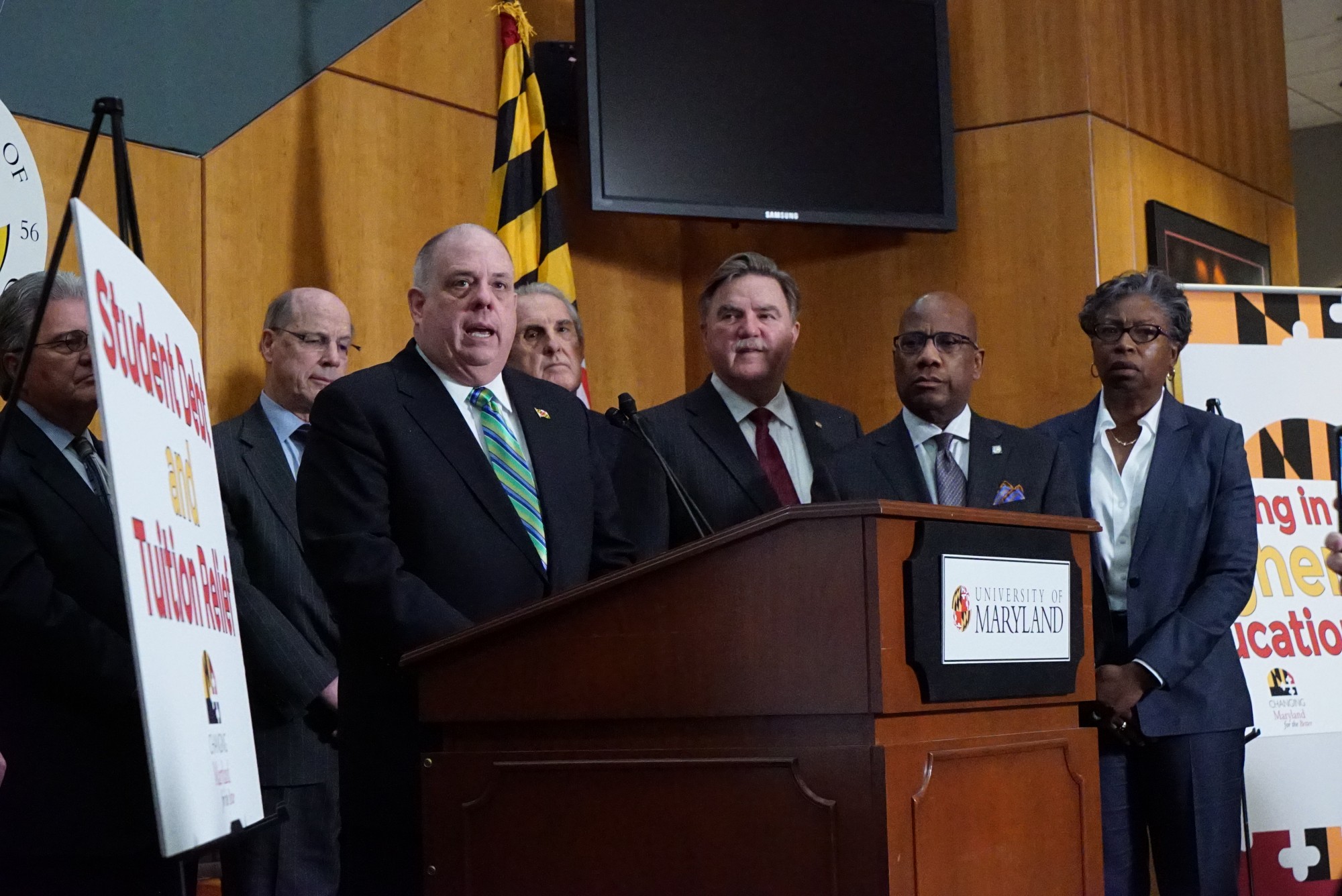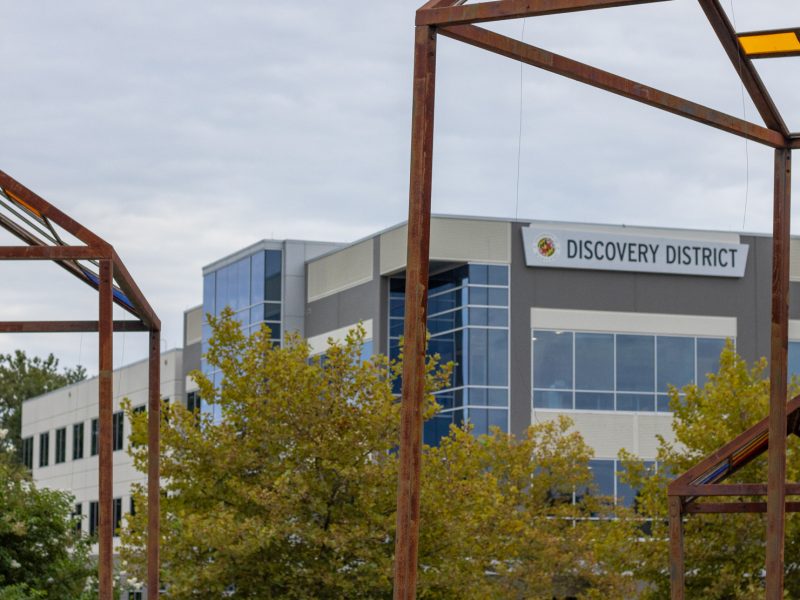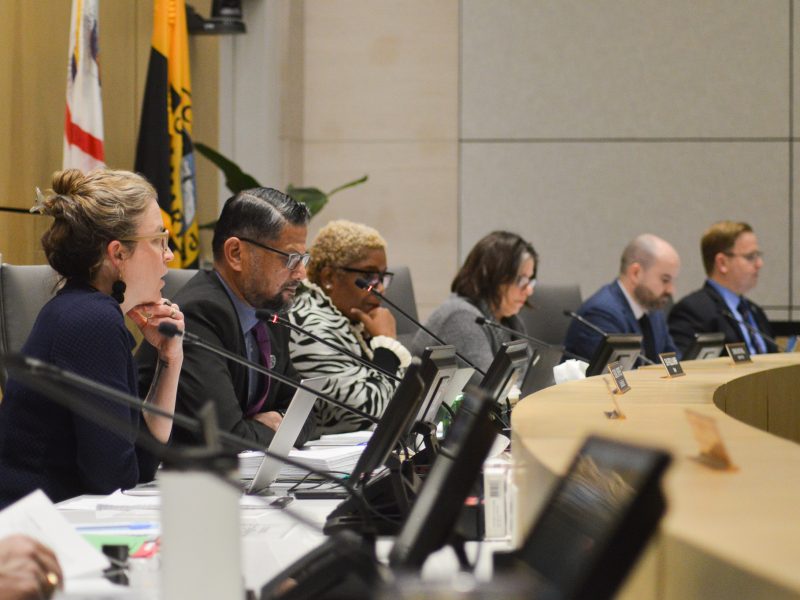Being a Republican governor in a Democratic state comes with its fair share of challenges, and President Trump hasn’t made life any easier for Maryland Gov. Larry Hogan.
Trump’s policies — most notably, his executive order banning travel from seven Muslim-majority nations — have stirred controversy and protests nationwide, including in Annapolis. Hundreds gathered outside Hogan’s home Saturday and demanded he speak out against Trump’s cabinet picks, as well as the travel ban.
In a state where Democrats outnumber Republicans more than 2-1, Maryland lawmakers have called on Hogan — who did not vote for Trump in the presidential election -— to address these concerns. Del. Kirill Reznik (D-Montgomery) said in a tweet that “it’s not that hard” for Hogan to voice opposition to Trump’s ban.
Hogan’s office released a statement saying his legal team was investigating the ban. But his focus remains on state policy, said Hannah Marr, a Hogan spokeswoman.
“The governor is committed to working with this administration, just as he has successfully worked with the previous administration, to promote what is in Maryland’s best interest, and he believes there are many areas where we can collaborate closely, including economic development and transportation infrastructure,” Marr wrote in an email.
Hogan did not address the travel ban or Trump’s proposal to eliminate the Affordable Care Act during his third annual State of the State speech Feb. 1. Instead, he highlighted his policy proposals for the state, including expanding school voucher options, requiring certain employers to offer paid sick leave and surmounting the state’s heroin and opioid crisis.
Stella Rouse, a government and politics professor at this university, said Hogan is between a “rock and a hard place” by not speaking out against the ban, but added that his hands-off approach could prove damaging.
“He’s enjoyed a relatively high popularity particularly for a Republican governor for a number of reasons, but this could definitely be his Achilles’ heel,” she said. Hogan’s approval ratings reached 74 percent in January, according to a Gonzales Research poll.
Rouse called this moment a “fork in the road” for Hogan, and said it could affect the outcome of his re-election campaign.
“Hogan could be one of the casualties of 2018 as this anti-Trump movement gears up, and that could happen no matter what he does,” Rouse said.
For this university’s College Republicans President Jacob Veitch, Hogan’s approach is an inclusive one, especially for Republicans who gave Trump a win in this state’s primary. In the presidential election, less than 34 percent of state voters supported Trump.
“He’s going to stick to the middle leading to this re-election campaign in [2018], and I think that’s a smart move,” said Veitch, a junior government and politics and international business major. “I think Marylanders are happy with the way he’s governed; he’s governed in a way that represents all of Maryland, not just the Republican Party, not just the Democratic Party.”
For College Democrats spokesman Will O’Malley — who is also the son of former Maryland Gov. Martin O’Malley — Hogan’s actions have been far from sufficient and show “absolute cowardice.”
Hogan and Trump aren’t so different after all, O’Malley said, citing Hogan’s 2015 statement against settling Syrian refugees in Maryland. Hogan asked the Obama administration to stop settlement of Syrian refugees in this state until the federal government could ensure that the refugees wouldn’t threaten public safety.
The governor’s team even deleted comments from the governor’s Facebook page this week requesting that he publicly oppose Trump’s travel ban. Hogan’s office has also blocked 450 people in the past two years, The Washington Post reported.
“It’s hysterical. He’s acting like a thin-skinned 12-year-old on his social media,” O’Malley said. “Larry Hogan is not going to be able to delete our voices or our votes, so we look forward to making our case to voters between now and 2018.”
The College Democrats intend to turn their opinions into action for the 2018 gubernatorial election, O’Malley said.



